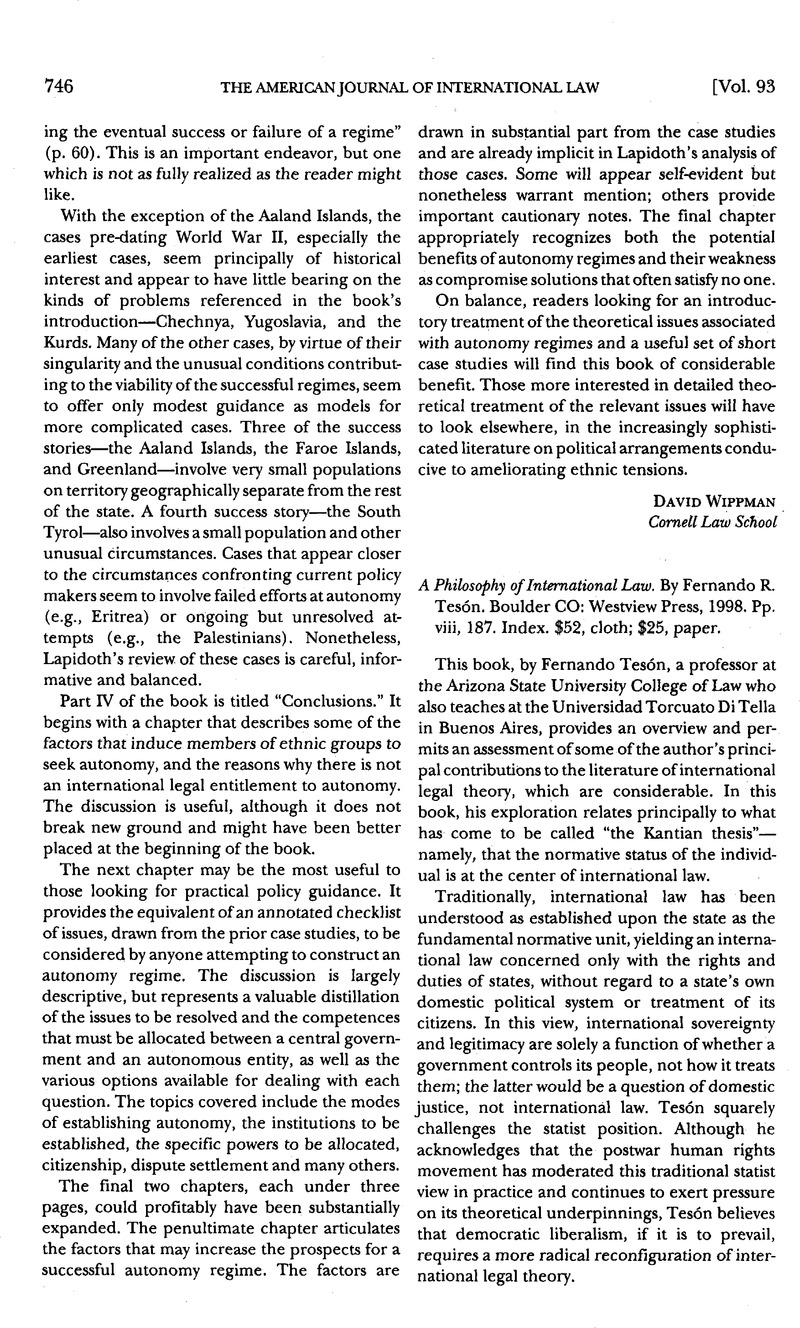No CrossRef data available.
Article contents
A Philosophy of International Law. By Fernando R. Teson. Boulder CO: Westview Press, 1998. Pp. viii, 187. Index. $52, cloth; $25, paper.
Published online by Cambridge University Press: 27 February 2017
Abstract

- Type
- Book Reviews and Notes
- Information
- Copyright
- Copyright © American Society of International Law 1999
References
1 Immanuel Kant, To Perpetual Peace, in Perpetual Peace, and Other Essays on Politics, History, and Morals 107 (Ted Humphrey trans., 1983).
2 This is a restatement of Kant’s three Definitive Articles, which set out the basic principles of his peace program. These are supplemented by six Preliminary Articles, comparable in function to standstill and rollback commitments in a trade agreement, establishing a framework for the implementation of the full program. Tesón discusses the structure of Perpetual Peace on pages 22–25.
3 See, e.g., Richard B. Lillich, Kant and the Current Debate over Humanitarian Intervention, 6 J. Transnat’l L. & Pol’y 397 (1997).
4 Anthony A. D’Amato, International Law: Process and Prospect 16–25 (1987).
5 John Rawls, The Law of Peoples, 20 Critical Inquiry 36 (1993).
6 Another approach, resulting in a view of international law more like Rawls’ but based on an entirely different methodology, is Surya P. Sinha’s legal polycentrist critique of international law, in particular of modern human rights law. See Surya P. Sinha, Legal Polycentricity and International Law (1996); see also, Frank J. Garcia, Book Review, 36 Va.J.Int’l L. 1085 (1996) (reviewing Surya P. Sinha, Legal Polycentricity and International Law (1996)).
7 Heiner Bielefeldt, Autonomy and Republicanism: Immanuel Kant’s Philosophy of Freedom, 25 Pol. Theory 524, 547–48 (1997).


